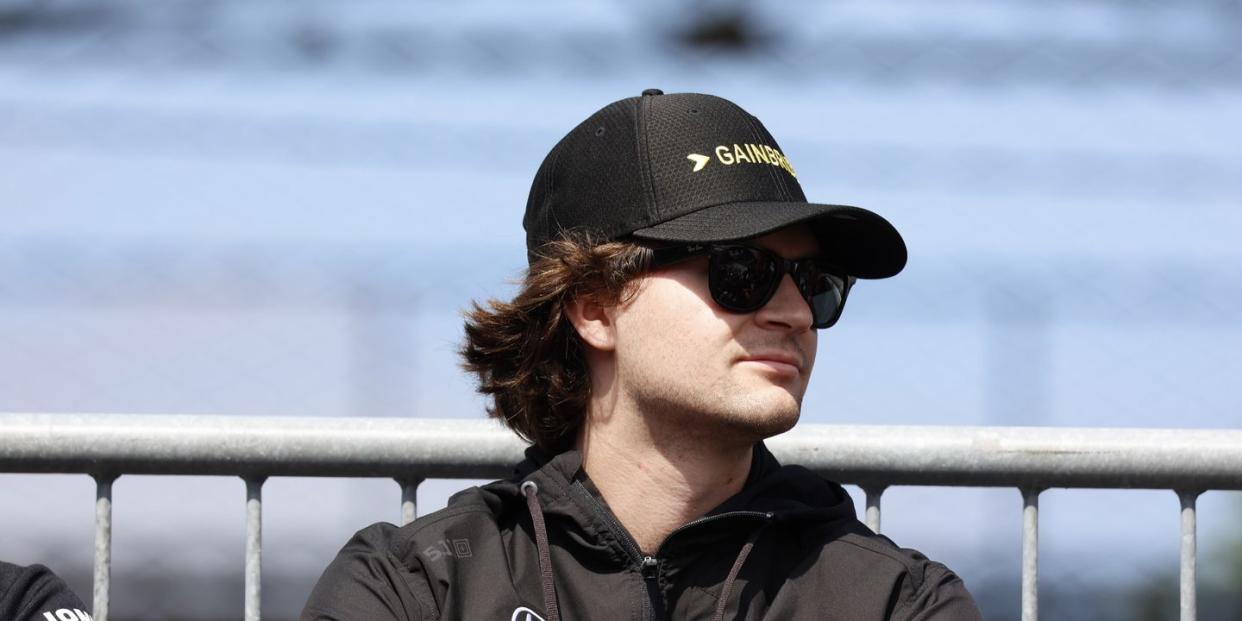The FIA Has Formally Rejected Colton Herta's Super License Bid

The FIA has formally announced that it will not grant Colton Herta a super license, ending a month of brief hope that Herta would be able to participate in an agreed-upon deal and join AlphaTauri for the 2023 Formula 1 season.
Herta, a seven-time IndyCar winner and nine-time pole sitter over four full seasons at just 22, had just 32 super license points earned in IndyCar. The margin for acceptance to the F1 grid is 40. While exact details of his protest are not known, two popular assumptions are that he either chose to argue in favor of his points from finishing second in the 2018 Indy Lights Series (rejected because the field was too small) or his points earned from his finishes in IndyCar's road-course-only championship standings. In the latter case, Herta would have easily qualified with 60 points off his finishes of second in both 2020 and 2021. Instead, the organization chose to run with the standings that factor in oval races that are in no way relevant to Herta's potential career in Formula 1.
An FIA spokesperson quoted by Autosport noted that "the FIA continuously reviews its regulations and procedures, including with respect to superlicence eligibility, with the main factors being considered with respect to this topic being safety, experience and performance in the context of the pathway." Nevertheless, the group continues to build its licensing system around Formula 2 and Formula 3 first and foremost, with a heavy bias of points awarded to each of its primary junior series over any non-F1 senior series in the world.
In theory, a system like that would force teams to hire junior drivers with merit only and eliminate the long-standing tradition of uncompetitive funded drivers taking up spots on the grid. The reality of the super license system is that the standard for Formula 1 participation is not particularly high. Nicholas Latifi, who recently announced his departure from Williams after a three-year run where he scored seven total points, qualified for his super license by finishing second in the weak 2019 Formula 2 field. Nikita Mazepin, who was not only notably uncompetitive but the only driver in recent history to draw real concerns about being a danger on track, qualified by finishing second in the 2018 GP3 series and fifth in the 2020 F2 season. Both are understood to have brought a budget to their teams and represent the exact sort of non-prospect funded driver this program is designed to keep out; instead, the program has held out a race-winning prospect from a senior series who drew test offers from McLaren and Alpine, not to mention an actual racing offer from Red Bull's development team at AlphaTauri.
Herta will return to IndyCar with Andretti Autosport in 2023, but he may need to consider other avenues to secure a super license. The Andretti Autosport team has not been particularly competitive in the series over the past few years, particularly in 2022 where the program won just twice, and the last 10 series champions have been employed by either Chip Ganassi Racing or Team Penske. Herta cannot count on a necessary top three finish in the hyper-competitive category. He can also earn super license points by completing practice sessions in an F1 car during a GP weekend or by winning a winter series, like the 2023 Formula Regional Asia championship set to run in January and February. If he chooses to go that route, a finish of just fourth in a reginal winter single-seater series would get him the same ten points he would earn for fourth in the hyper-competitive IndyCar series.
Herta is also set to contest the 24 Hours of Daytona in BMW's new M Hybrid V8, his first attempt in the top class of the race. He has previously won it in the GTLM and LMP2 classes, notably making a pass for the LMP2 class win in the final hour of this year's race.
You Might Also Like
